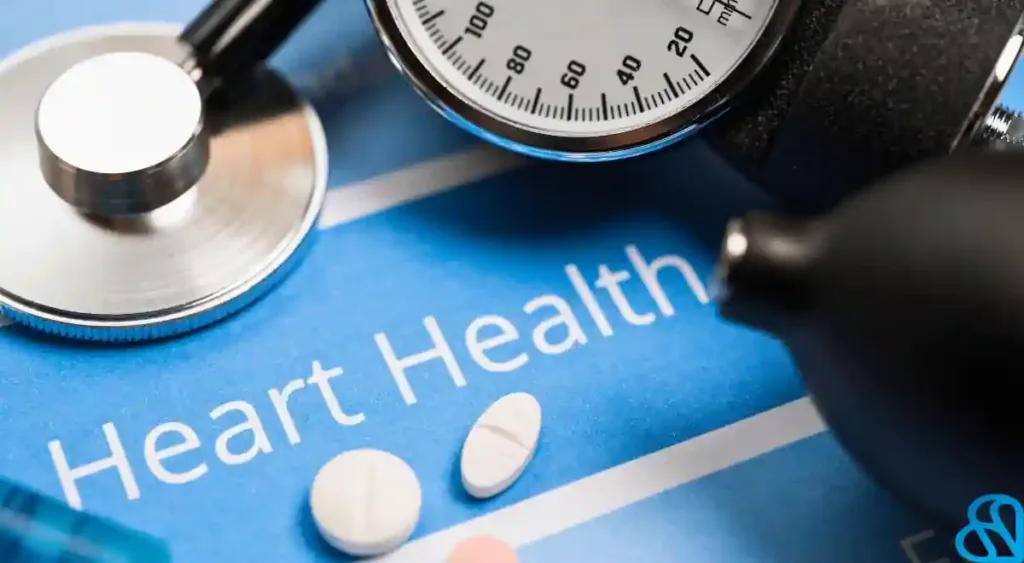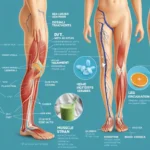Can Dehydration Damage Your Heart? Discover how dehydration affects your heart health in this informative blog.
Can Dehydration Damage Your Hear; In the rush of our daily lives, we often forget one of our most essential health aspects: hydration. It’s more than just a clever marketing slogan; staying hydrated is directly linked to the well-being of our hearts. But how exactly does dehydration impact our cardiovascular system, and what can we do to keep our hearts healthy through proper hydration? This comprehensive guide will explore the intricate connection between dehydration and heart health, offering valuable insights for health enthusiasts and those seeking to safeguard their cardiac well-being.
The impact of dehydration on other organs
Dehydration impacts more than just our heart; it can wreak havoc on our entire body system. The kidneys, for instance, require adequate hydration to filter waste from the blood. In a dehydrated state, the kidneys struggle to function efficiently, leading to the potential build-up of toxins. The brain, another organ critically dependent on water, can exhibit signs of cognitive impairment, such as difficulty concentrating or short-term memory problems when hydration levels drop. Even our skin, the body’s largest organ, can suffer from dehydration, becoming dry, less elastic, and more prone to premature aging. Thus, it becomes crystal clear that maintaining proper hydration is vital for overall bodily function, not just our heart health.
The Connection between Hydration and Exercise
The association between hydration and exercise is significant. It’s well known that during physical activity, our bodies generate heat, the body dissipates through perspiration. However, this fluid loss can lead to dehydration if not adequately replenished. Dehydration during exercise can adversely affect performance and may even result in heat stress or more severe heat-related illnesses. Moreover, when the body is dehydrated, pumping blood and supplying oxygen to the functioning muscles requires more effort from the heart, increasing the risk of cardiovascular strain. Hence, it’s critical for individuals engaging in physical activities to maintain proper hydration before, during, and after exercise. Drinks containing electrolytes can be particularly beneficial, as these help to replace salts lost through sweating and keep the body’s fluid balance in check. This hydration-exercise relationship underscores the importance of consuming fluids regularly when exercising to ensure optimal heart health and overall performance.
Also Read- 9 High Cholesterol Symptoms Neck Pain
– The Importance of Regular Check-Ups
Consistent medical check-ups play a paramount role in maintaining heart health and overall well-being. Regular health assessments can aid in the early detection of potential issues, including dehydration and its impact on the heart. You can monitor vital signs such as blood pressure, heart rate, and body temperature through these check-ups, enabling doctors to gauge the body’s hydration status and its effect on cardiac function. Essential blood and urine tests can also clearly indicate kidney function, another organ significantly affected by hydration levels. Furthermore, regular check-ups can serve as educational sessions where healthcare professionals can advise individuals on the importance of hydration, primarily when related to exercise, and provide personalized guidance on maintaining optimal hydration levels. Consequently, regular medical check-ups are crucial to a comprehensive approach to cardiac hydration awareness.
Also Read- Quick Weight Loss In 2 Weeks-

Understanding Dehydration
Excessive loss of fluids compared to intake results in dehydration. Excessive sweating is one of several causes that might cause this imbalance, as are fever, vomiting, or diarrhea. Dehydration can have various effects, from minor discomfort to life-threatening illnesses, affecting the body’s normal functions, including those of the heart.
– Definition and Causes of Dehydration
Dehydration occurs when the body’s water content falls below a certain level, disrupting the balance of minerals, such as electrolytes, essential for various bodily processes. Common causes of dehydration include;
Dehydration Causes:
- Insufficient water.
- Physical exertion.
- Alcohol consumption.
- Conditions escalating fluid loss.
– Effects on the Body, Including the Heart
The body’s response to dehydration involves several physiological changes to conserve water. Blood volume decreases, affecting blood pressure regulation and oxygen delivery to cells. As the demands on the heart increase to maintain circulation, the risk of cardiovascular strain rises, potentially leading to various cardiac issues.
Also Read- How to Increase Water Intake in Winter
Dangers of Dehydration for the Heart
Dehydration can have a series of repercussions for the heart, from immediate effects on heart rate and blood pressure to long-term risks of cardiovascular diseases.
– Impact on Blood Volume and Circulation
Water is a primary blood component for transporting nutrients and oxygen throughout the body. When dehydration reduces blood volume, the heart has to work harder to ensure proper circulation, leading to increased strain on the organ.
– Increased Risk of Cardiovascular Diseases
Research, such as the study on dehydration and cardiovascular disease risk in elderly individuals, suggests a correlation between chronic dehydration and the occurrence of heart issues. Prolonged dehydration may increase the risk of conditions like hypertension, myocardial infarction, and stroke.
– Effects on Heart Rate and Rhythm
Dehydration-induced low blood volume can lead to a rapid heart rate, known as tachycardia, as the heart attempts to pump the reduced amount of blood faster to meet the body’s needs. Electrolyte imbalances, often associated with dehydration, can also disrupt the heart’s electrical activity, leading to arrhythmias.
Signs and Symptoms of Dehydration
The symptoms of dehydration must be crucial since prompt treatment can avert a worsening of the condition, especially those concerning the heart.
– Physical Signs to Watch Out For
Dehydration Symptoms:
- Increased thirst
- Dry mouth
- Decreased urine output
- Dark-colored urine
- Fatigue
- Dizziness
- Fever
- Severe dehydration: rapid pulse, shock
– Changes in Heart Rate and Blood Pressure
As the body becomes dehydrated, adjustments are made to preserve fluid. Heart rate increases to maintain blood pressure, which can lead to palpitations, especially in earnest efforts to compensate for lost fluids.
Also Read- Tips to Increase Water Intake |Importance of Hydration in Winter

Preventing Dehydration
Prevention is the best approach to safeguard against the potential harm of dehydration on the heart.
– Importance of Adequate Fluid Intake
A general guideline for optimal fluid intake is at least 8 cups of water per day, although individual needs vary with factors like age, sex, and activity level. Hydration should be a conscious step in your daily routine, not a response to thirst.
– Tips for Staying Hydrated Throughout the Day
Daily Water Consumption Recommendations
- Incorporate regular water intake.
- Set reminders for water intake.
- Consume high-water-content foods like cucumbers and watermelon.
– Recognizing and Addressing Electrolyte Imbalances
Salt and potassium, two types of electrolytes, are essential for the heart’s electrical functioning and muscle contraction. Imbalances can be caused by dehydration or overhydration and should be corrected under medical supervision if identified.
Also Read- Vitamin C in Winter for Skin: Nourish Your Skin with Vitamin C
Hydration and Heart Health
One cannot stress the importance of hydrating to keep the heart healthy. Proper fluid balance is crucial for the heart to function efficiently and can lead to several benefits for cardiovascular health.
– Benefits of Proper Hydration for Cardiovascular Function
Hydration Importance
- Ensures optimal blood volume and viscosity.
- Supports smooth circulation.
- Prevents heart strain.
- Maintains electrolyte balance.
- Facilitates consistent heart rhythm and efficient muscle contractions.
– Case Studies: Hydration’s Impact on Heart Health
Population-based and elderly studies on hydration’s impact on heart health have revealed compelling correlations between good hydration and reduced risk of cardiovascular diseases. These findings reinforce the importance of hydration as a protective factor for heart health across different age groups.
Also Read- Diabetes and Cold Weather- Tips for Staying Healthy in Winter!
The Importance of Electrolytes
Electrolytes, including sodium, potassium, calcium, and magnesium, play a crucial part in preserving overall wellness, mainly heart function. They regulate the heart’s electrical activity and ensure consistent muscle contractions, which are crucial for a steady heartbeat. Electrolyte imbalances, caused by dehydration or overhydration, may result in irregular heart rhythms or arrhythmias. When they get worse, they can cause heart failure and hypertension, among other ailments. conditions such as hypertension and heart failure. Therefore, a balanced intake of electrolytes is as crucial as staying hydrated. Eating a diet high in vegetables, fruits, milk, and other dairy products can assist in keeping the electrolyte balance in your body healthy. It’s also essential to remember that you must balance the level of each electrolyte in the body with the others for optimal heart health.
Conclusion- Can Dehydration Damage Your Hear
This guide has delved into the critical link between hydration and heart health, highlighting the potential dangers of dehydration and the myriad benefits of staying adequately hydrated. By prioritizing your fluid intake and recognizing the signs of dehydration, you can play an active role in preserving the health of your most vital organ. Remember, the health of your heart starts with a glass of water in your hand, so take the necessary steps to hydrate your way to a robust cardiovascular system. If you suspect dehydration and are concerned about its impact on your heart, seek medical attention immediately. It’s always possible to turn the tide on dehydration and prioritize a heart-healthy lifestyle.
Hi there! I’m content writer and blogger. With over two years of experience, I’ve shared my passion for writing across various platforms. I firmly believe in the transformative power of words and look forward to sharing this journey with you. Enjoy my work!










